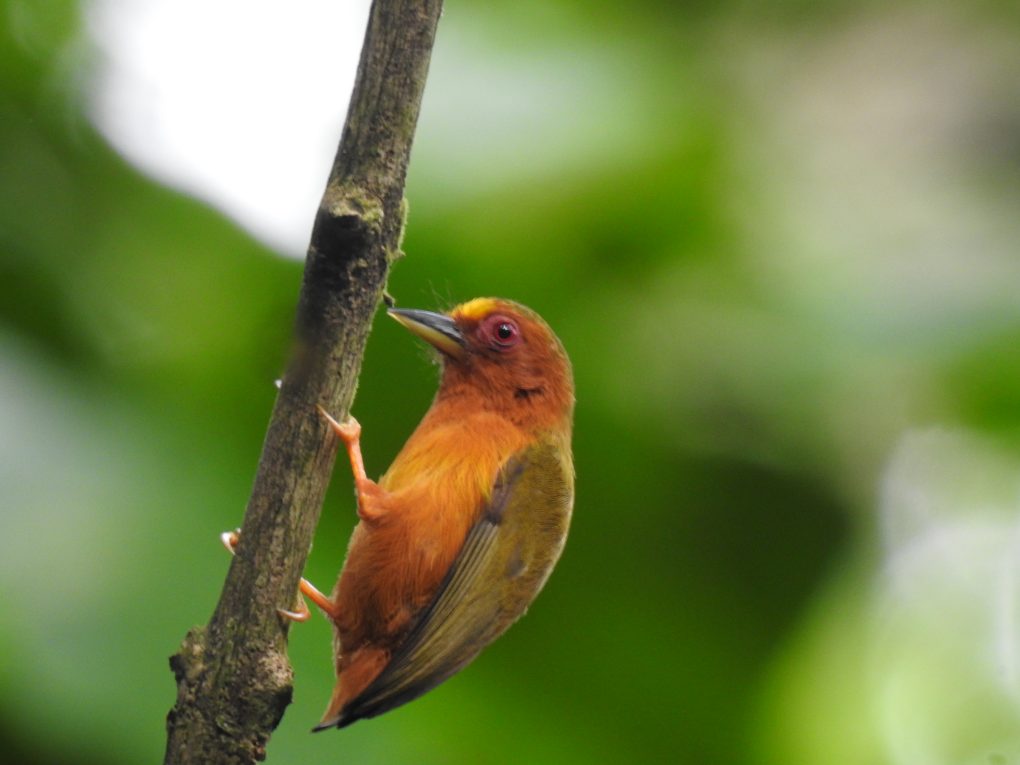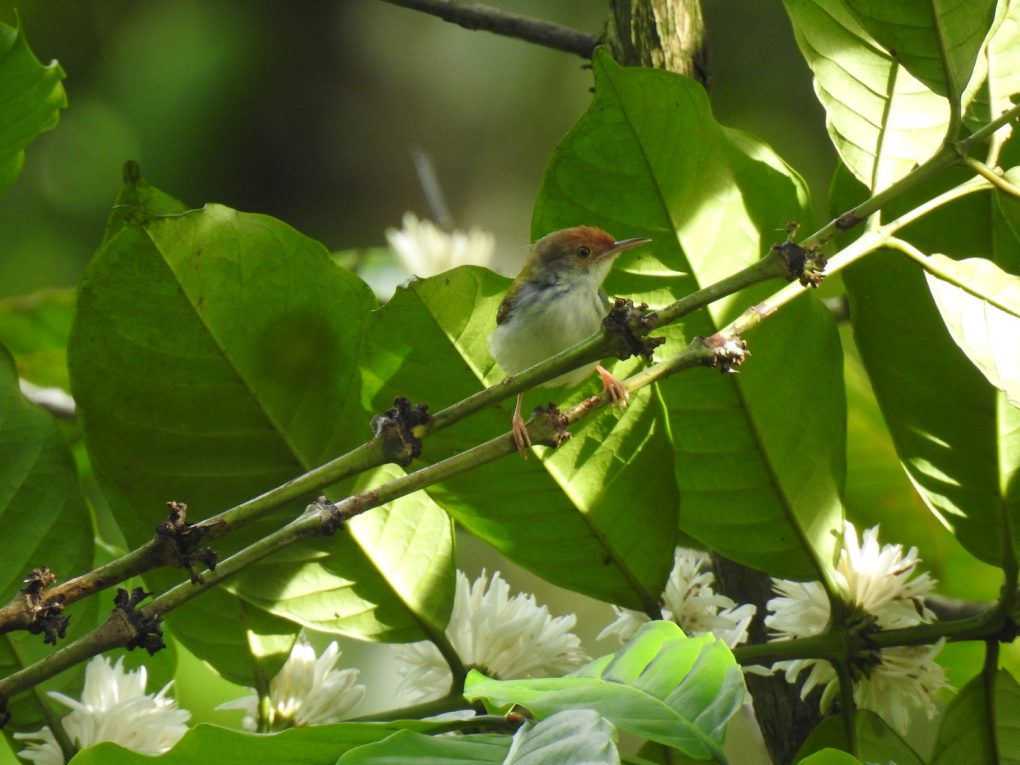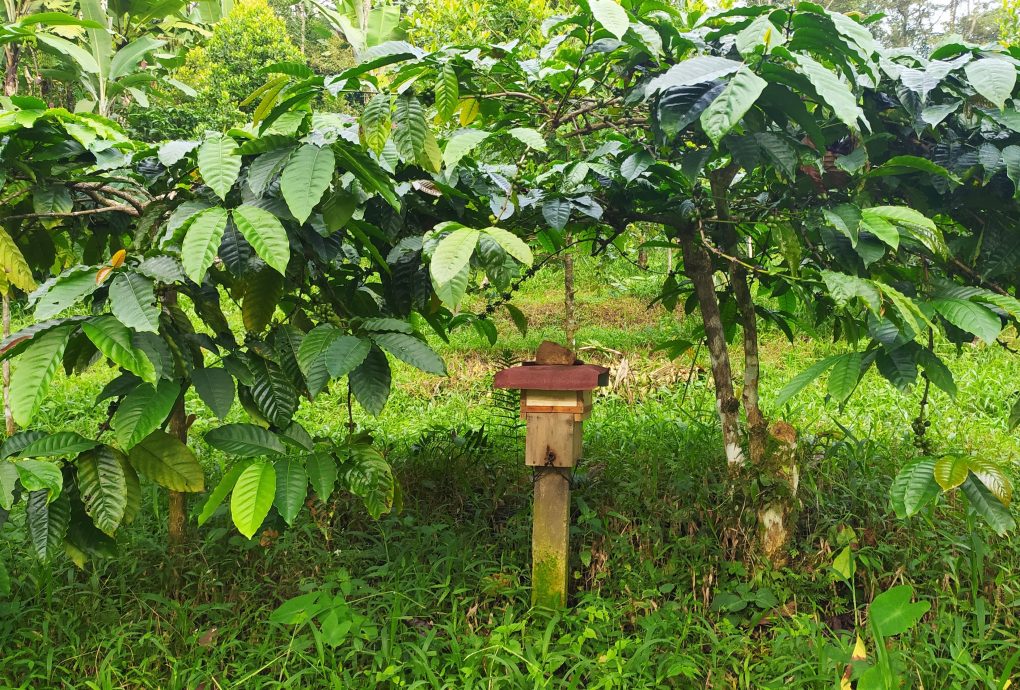By Sidiq Harjanto, translated by T.T.Chan
Pekalongan Regency is one of the regions in Central Java Province known for coffee production. According to the Indonesian Plantation Statistics 2020-2022 data released by the Indonesian Ministry of Agriculture’s Directorate General of Plantations, the output of robusta coffee from smallholders in Pekalongan was at 372 tonnes, involving a total of 1,650 farmers on 483 ha of land. That of arabica coffee, on the other hand, was at 100 tonnes from 857 farmers on 198 ha.
In terms of total volume, Pekalongan produces far less robusta beans than the neighbouring regencies of Temanggung (9,761 tonnes), Kudus (1,594 tonnes), and Banjarnegara (1,570 tonnes). This significant difference in figures is due in part to the area of land and number of farmers involved in growing coffee. However, Pekalongan performs quite well on productivity per hectare at 823 kg/ha, which is above the national average of 817 kg/ha. That said, these figures are still a far cry from Vietnam’s 2,300 kg/ha.
Mendolo is a village in Pekalongan where livelihoods largely depend on coffee produced through the agroforestry system. In order to enhance the value of coffee beans grown by local farmers, the Mendolo Young Farmers’ Association (PPM Mendolo) now grind these, which they market under the brand ‘Kopi Batir’. The Kopi Batir brand also offers roasting services to locals who want to enjoy coffee from their village’s plantations without having to do the roasting themselves.
Last year, this coffee business produced around 700 kgs of premium quality coffee, sold in the form of ground coffee or green beans. While this amount still pales in comparison to the volume of coffee beans from this village sold as cherries or sent out without sorting, the production capacity of this business continues to increase year by year.
In fact, Kopi Batir roasted more than one tonne of coffee beans in 2022. M. Ridholah is the man behind this remarkable initiative that has revived his fellow villagers’ interest in drinking their own coffee. Only equipped with a simple self-assembled roaster machine, he has helped to place Kopi Batir at the forefront of steering consumption trends away from factory coffee and towards locally grown coffee.
A Small Step in a Promising Direction
Creating the optimal coffee plantation requires knowledge of and experience in land preparation, fertilisation, pruning, pest control and a well-thought-out harvesting process. In addition, coffee growers need to understand the ways in which their crop interacts with the natural environment – how their productivity could be influenced by ecosystem services, for example.
On 18 March 2023, as part of our ‘Mendolo Coffee Meet’ event, SwaraOwa/Owa Coffee invited PPM Mendolo and representatives of coffee growers to work out how coffee cultivation in Mendolo could be done in a way that reflects greater ecological awareness. Our hope was to come up with a set of improved practices that would allow the natural environment to thrive and provide farmers with ecosystem services in order to boost their income.
Biodiversity is an integral part of agroforestry plantations and has the potential to be a positive influence on the crops grown there. Chain-Guadarrama et al., in a 2019 article ‘Ecosystem services by birds and bees to coffee in a changing climate: A review of coffee berry borer control and pollination‘, state that birds and bees are two types of fauna that play a key role in coffee cultivation. Many bird species prey on insects and are therefore indispensable as ecological pest-control agents. Remove these birds and the insect population could explode, resulting in direct losses for farmers.
To ensure that birds can fulfil their role in the ecosystem, they must first be protected and allowed to live freely in the wild. Next, birds also need suitable habitat. Agroforestry or intercropping could provide this as they ensure that a variety of vegetation layers and types are present, thereby increasing opportunities for birds to find food and places to nest.
Bees, on the other hand, help to pollinate coffee plants. Robusta coffee requires cross pollination, which is done by the wind and insects. Arabica coffee differs in being able to self-pollinate, but insect-mediated pollination has been proven to increase the quality and quantity of the crop. Therefore, bees have the potential to boost Arabica coffee yields.
There are numerous species of bee worldwide, including dozens of types of honey bee, hundreds of stingless bees (klancèng), and thousands of solitary bees. Each type has its own distribution and occupies different habitats. Which species of bees are beneficial for coffee and what type of habitat they need are issues that still require a lot of research.
Fully leveraging various bee species as pollinating agents necessitates the protection of their habitat, avoiding the use of pesticides and integrating beekeeping into spaces used for agriculture. In Mendolo, stingless bee husbandry has been practised since 2017. Aside from producing honey that could generate more income for locals, beekeeping in Mendolo also allows farmers to reap the benefits of the ecosystem services provided by bees, which both increase agricultural productivity and improve the sustainability of the forest.
Although the benefits agriculture stands to gain from ecosystem services are undeniable, our focus group discussions have revealed that much hard work is still needed to convince farmers to adopt bird and bee-friendly practices. More research needs to be done on the role of birds in keeping agricultural pest populations under control, and how these ecological services can best be harnessed. Likewise with bee pollination services, the ideal way of integrating beekeeping with agroforestry still remains to be found.
PPM Mendolo will spearhead participatory research to explore the roles of biodiversity and ecosystem services in the Mendolo agroforestry system. They will also continue spreading awareness about the ecological roles of birds and bees. Given the community’s reliance on agriculture, Mendolo needs to be encouraged to become a village that cares about biodiversity. For this to be achieved, Mendolo and villages like it need to first have comprehensive data on their biodiversity.
We sincerely applaud PPM Mendolo for their pioneering work in pushing for innovation in agroforestry and raising awareness of how important biodiversity is to the local community. At our ‘Mendolo Coffee Meet’ event, SwaraOwa presented a roasting machine with a capacity of 1 kg to Batir Coffee. It was our token of appreciation to them for their hard work in developing coffee delights in Mendolo, as well as to PPM Mendolo for their efforts to encourage conservation in the village, including of the Javan gibbon and Javan slow loris.



